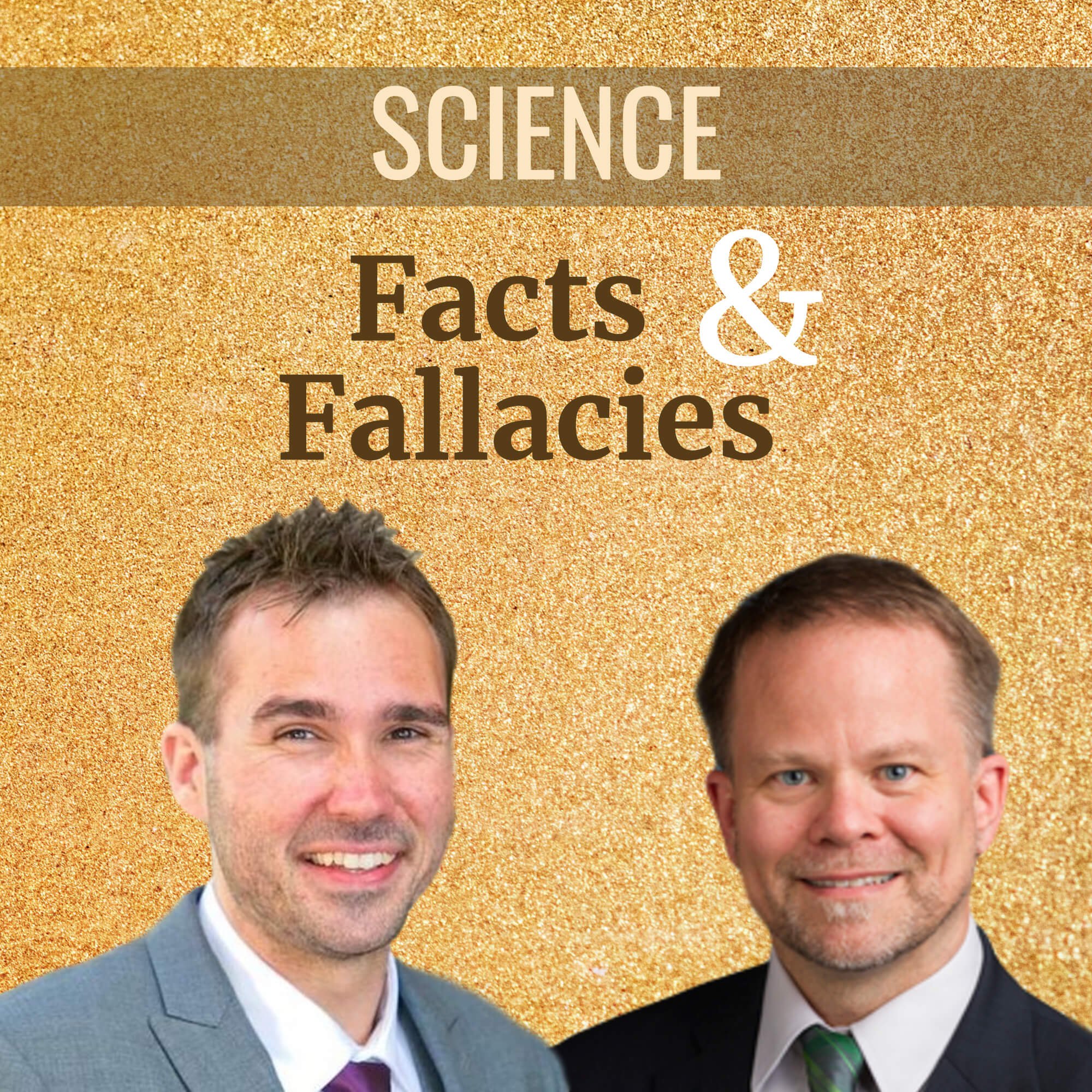How to build a Coronavirus, alcohol doesn't shrink your brain and locusts threaten famine in east Africa
Update: 2020-03-04
Description
Should we build a synthetic coronavirus? Does alcohol shrink your brain? As Africa battles a massive locust infestation, why are activists trying to ban insecticides that could halt the destructive pest? And how many trillions of dollars do nutrient deficiencies cost every year? Plant geneticist Kevin Folta and GLP editor Cameron English return to the Biotech Facts and Fallacies podcast to break down four of the latest headlines from the world of genetics and biotechnology.
Alcohol shrinks your brain?
We've all heard that alcohol consumption can impact our long-term cognitive abilities—and even shrink our physical brain mass. There is almost certainly a link between imbibing and brain function, but the latest research suggests the relationship isn't what it seems. Do moderate drinkers have smaller brains, or do people with slightly smaller brains drink a little more than the rest of us? A series of recent studies indicate that smaller brain size is probably a marker of genetic predisposition to higher alcohol consumption. The complex relationship offers us a textbook example of the dictum "correlation isn't causation."
Moderate drinking won’t shrink your brain, but people with smaller brains do drink ‘slightly’ more
Building a synthetic coronavirus
Credit: Mladen Antonov/AFP
While cases of coronavirus (Covid-19) begin to decline in China, the pathogen continues to spread across the globe. Researchers are working at a feverish pace to develop better diagnostic tools, treatments and vaccines for the infection. With access to the virus's full genome, experts have begun building synthetic versions of the virus using custom-ordered genes synthesized in specialized labs around the US. This strategy allows scientists to replicate Covid-19, edit its DNA and expose it to chemicals that might effectively treat the disease that has infected at least 92,000 people and killed more than 3,000. But if well-meaning scientists can buy viral DNA online, can't would-be bioterrorists as well?
Creating a synthetic version of the coronavirus fuels hopes of treatments — and conspiracy theories
Activists aim to ban pesticides that could curb locust swarms in Africa
East African countries are facing a food security threat more severe than any they've faced in decades: swarms of ravenous desert locusts are consuming everything in their path, including the crops people rely on to feed themselves. The pests can be stopped dead in their tracks with the application of widely used insecticides.
However, EU-based anti-pesticide groups are pressuring African governments to ban these chemicals, despite the fact that millions of people could go hungry if the locust infestation isn't eradicated. According to science writer James Njoroge, "European activists are putting lives at risk in East Africa, turning a plague of insects into a real prospect of widespread famine."
East Africa faces two ...
Alcohol shrinks your brain?
We've all heard that alcohol consumption can impact our long-term cognitive abilities—and even shrink our physical brain mass. There is almost certainly a link between imbibing and brain function, but the latest research suggests the relationship isn't what it seems. Do moderate drinkers have smaller brains, or do people with slightly smaller brains drink a little more than the rest of us? A series of recent studies indicate that smaller brain size is probably a marker of genetic predisposition to higher alcohol consumption. The complex relationship offers us a textbook example of the dictum "correlation isn't causation."
Moderate drinking won’t shrink your brain, but people with smaller brains do drink ‘slightly’ more
Building a synthetic coronavirus
Credit: Mladen Antonov/AFP
While cases of coronavirus (Covid-19) begin to decline in China, the pathogen continues to spread across the globe. Researchers are working at a feverish pace to develop better diagnostic tools, treatments and vaccines for the infection. With access to the virus's full genome, experts have begun building synthetic versions of the virus using custom-ordered genes synthesized in specialized labs around the US. This strategy allows scientists to replicate Covid-19, edit its DNA and expose it to chemicals that might effectively treat the disease that has infected at least 92,000 people and killed more than 3,000. But if well-meaning scientists can buy viral DNA online, can't would-be bioterrorists as well?
Creating a synthetic version of the coronavirus fuels hopes of treatments — and conspiracy theories
Activists aim to ban pesticides that could curb locust swarms in Africa
East African countries are facing a food security threat more severe than any they've faced in decades: swarms of ravenous desert locusts are consuming everything in their path, including the crops people rely on to feed themselves. The pests can be stopped dead in their tracks with the application of widely used insecticides.
However, EU-based anti-pesticide groups are pressuring African governments to ban these chemicals, despite the fact that millions of people could go hungry if the locust infestation isn't eradicated. According to science writer James Njoroge, "European activists are putting lives at risk in East Africa, turning a plague of insects into a real prospect of widespread famine."
East Africa faces two ...
Comments
In Channel





